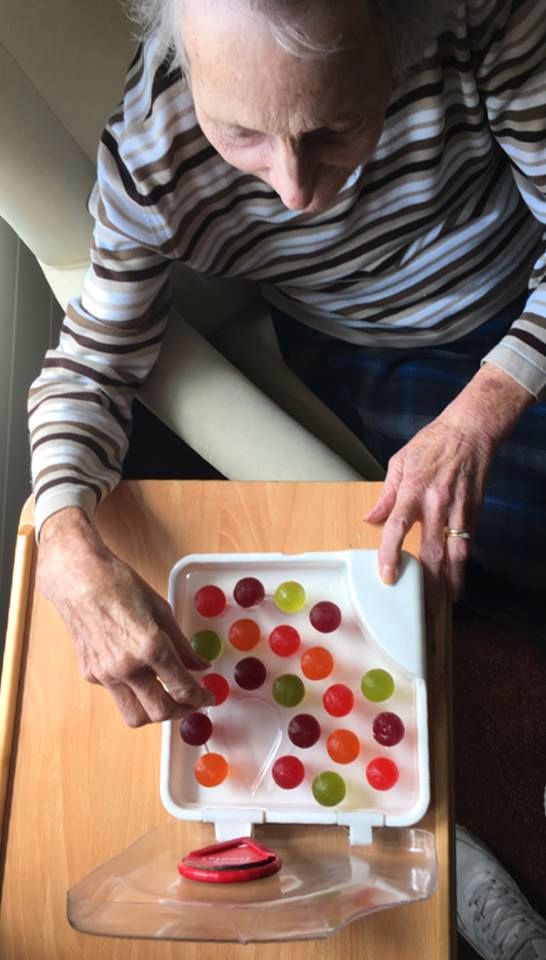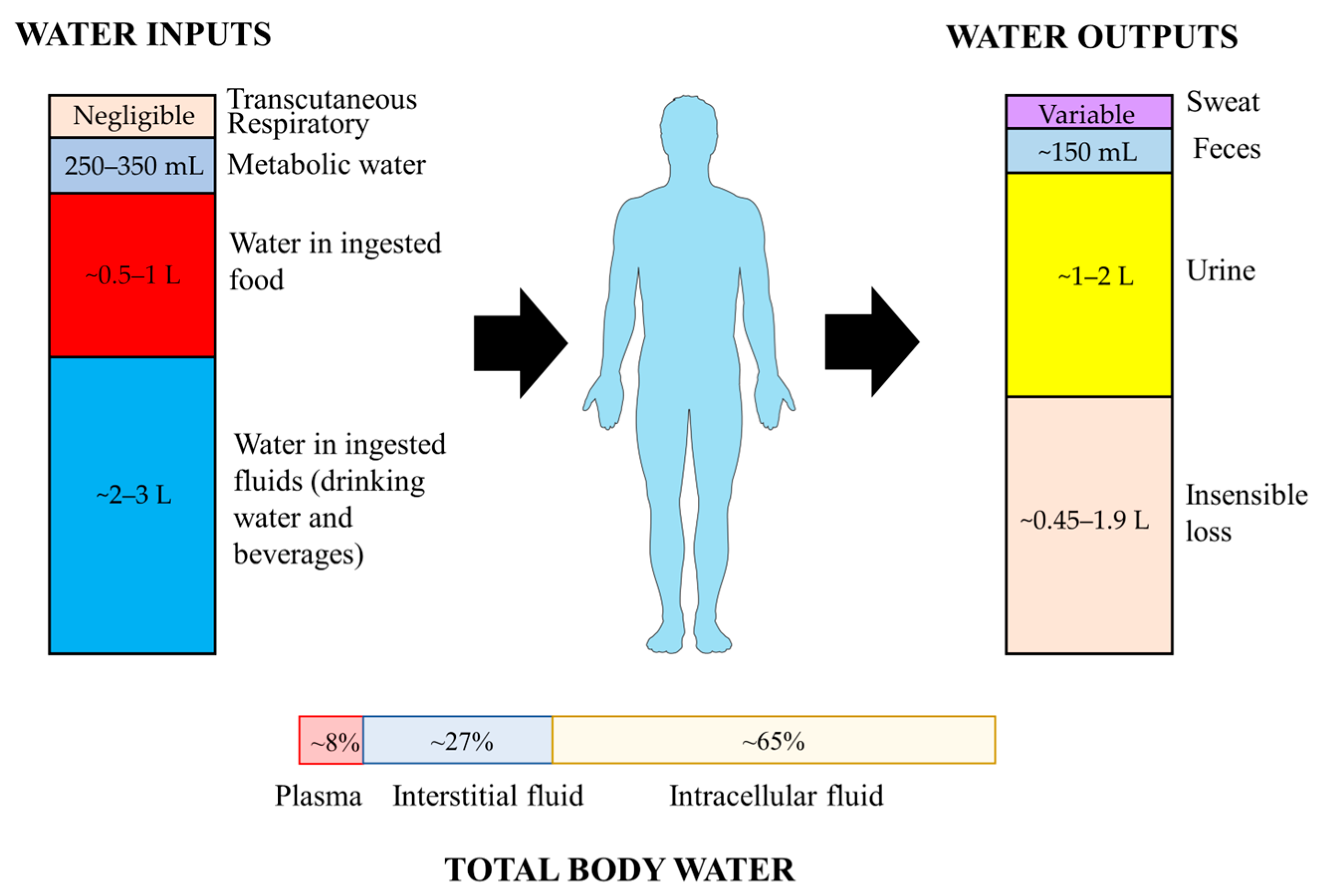Consider edible water to hydrate elderly when traditional methods of hydration, such as drinking fluids, are not feasible or effective. As we age, it can become increasingly difficult for seniors to stay properly hydrated.
However, consuming foods with high water content or using solutions like oral rehydration options can help maintain hydration levels. In certain cases, edible water, like jelly drops, can be a helpful alternative for elderly individuals with conditions like dementia. These innovative water balls are designed to be visually appealing and enticing, making it easier for seniors to stay hydrated.
By exploring different options for hydration, we can ensure the elderly maintain optimal health and well-being.

Credit: healthcare channel.co
Benefits Of Edible Water For Elderly
Considering edible water as a hydration option for elderly individuals can provide numerous benefits. Edible water is easy to consume, hydrates the body effectively, and can be a convenient alternative for seniors who have difficulty drinking fluids.
Improved Hydration
One of the key benefits of edible water for the elderly is improved hydration. As we age, our bodies naturally lose water at a faster rate, making it vital for seniors to stay properly hydrated. Edible water offers a convenient and delicious solution to this issue.
Edible water is rich in electrolytes that help replenish lost fluids and maintain a healthy balance in the body. It provides a hydrating boost that can keep the elderly feeling refreshed and energized throughout the day. By incorporating edible water into their daily routine, seniors can ensure they are meeting their hydration needs effectively.
Easy Consumption For Those With Difficulty Drinking
For elderly individuals who have difficulty drinking or swallowing, consuming enough fluids can be a challenge. This is where edible water offers a significant advantage. Its unique form allows for easier consumption, making it an excellent hydration option for seniors with such difficulties.
Unlike traditional water, which requires the act of swallowing, edible water can be consumed in small, bite-sized portions. It eliminates the need for excessive swallowing and minimizes the risk of choking. This feature makes it particularly beneficial for elderly individuals with dysphagia or other swallowing disorders, ensuring they can stay hydrated without discomfort.
Tasty And Appealing
Another advantage of edible water for the elderly is its taste and appeal. As we age, our sense of taste and smell may diminish, leading to a decreased appetite and aversion to certain foods and beverages. However, edible water often comes in a variety of flavors, making it more enticing and enjoyable.
The pleasant taste and appealing texture of edible water can help seniors overcome any reluctance to drink enough fluids. It provides a refreshing and flavorful alternative to plain water, encouraging regular consumption. By incorporating different flavors into their hydration routine, elderly individuals can ensure they stay properly hydrated while also enhancing their overall enjoyment of fluids.

Credit: www.mdpi.com
Guidelines For Hydration For The Elderly
Approaching the Subheading with an Introductory Paragraph
Recommended Fluid Intake
Ensuring adequate fluid intake is important for maintaining hydration among the elderly population. As individuals age, the sensation of thirst may decline, making it crucial to actively monitor and manage their hydration levels. The National Council on Aging suggests that older adults should aim to consume at least 8 cups (64 ounces) of fluids per day. This, however, can vary based on various factors such as overall health, physical activity, and the presence of certain medical conditions.
H3 Heading – Water-Rich Food Options
Water-rich Food Options
For elderly individuals who have difficulty drinking enough fluids, incorporating water-rich foods into their diet can be an effective strategy to boost hydration. These foods not only provide essential nutrients but also contribute to overall fluid intake. Some examples of water-rich foods include cucumbers, watermelon, lettuce, strawberries, tomatoes, and celery. Additionally, soups, broths, and stews can be a flavorful and hydrating choice, especially during colder weather.
H3 Heading – Hydration Solutions
Hydration Solutions
When hydration becomes a challenge for the elderly, considering alternative solutions can be beneficial. One effective option is edible water, which provides a convenient and portable source of hydration. Edible water is typically in the form of gel-like spheres or cubes, which can be consumed directly or added to meals. These innovative hydration solutions offer a unique way to ensure the elderly stay adequately hydrated throughout the day.
Managing Dehydration In The Elderly
When considering ways to hydrate the elderly, edible water can be a suitable option. It provides a convenient and easily ingestible form of hydration, especially for those who may have difficulty drinking fluids. Incorporating water-rich foods and oral rehydration solutions can also help manage dehydration in the elderly.
Signs And Symptoms Of Dehydration
Dehydration can lead to serious health issues in the elderly, so it’s important to be aware of the signs and symptoms. Look out for the following:
- Thirst
- Dry mouth and tongue
- Dark-colored urine
- Fatigue
- Dizziness or lightheadedness
- Confusion or disorientation
- Decreased urine output
These symptoms may indicate that an elderly person is experiencing dehydration and should be addressed promptly to prevent further complications.
Importance Of Hydration In Aging
Hydration plays a crucial role in the overall well-being of the elderly. As people age, their bodies undergo various changes that can increase the risk of dehydration. With age, the ability to detect thirst diminishes, making it important to monitor fluid intake proactively.
Furthermore, dehydration can lead to serious health consequences in the elderly, including urinary tract infections, kidney problems, and even cognitive decline. By ensuring adequate hydration, the risk of these complications can be significantly reduced.
Preventing And Treating Dehydration
To prevent and treat dehydration in the elderly, several strategies can be implemented:
- Encourage regular fluid intake: Remind the elderly to drink fluids throughout the day, even if they do not feel thirsty.
- Hydrating foods: Include water-rich foods in their diet, such as cucumbers, watermelon, lettuce, strawberries, and celery. Soups, broths, and stews are also excellent options.
- Offer alternatives to water: If the elderly have difficulties drinking plain water, provide them with alternative options like unsweetened herbal teas or seltzer mineral waters.
- Use oral rehydration solutions: In cases where dehydration is severe, considering the use of oral rehydration solutions, such as Hydralyte, can help replenish fluids and electrolytes.
By following these preventive measures and remaining mindful of fluid intake, the risk of dehydration in the elderly can be effectively managed and minimized.
The Jelly Drops Alternative
The Jelly Drops Alternative offers a unique solution for hydrating the elderly with edible water that resembles sweets. It provides a fun and easy way to ensure proper hydration, especially for those who have difficulty drinking fluids.
Introduction To Jelly Drops
As elderly individuals age, staying hydrated becomes increasingly important for maintaining their overall health and well-being. However, seniors, especially those with dementia, may face difficulties in consuming enough fluids throughout the day. That’s where Jelly Drops comes in as a delightful and innovative alternative. Developed by Lewis Hornby, a London-based designer, Jelly Drops are colorful and bite-sized water droplets that resemble sweets.
Benefits For Elderly With Dementia
- Sensory Appeal: The vibrant colors and appealing appearance of Jelly Drops can stimulate the senses of elderly individuals with dementia, who may have a diminished interest in food and drink. This can result in greater engagement and a willingness to consume the hydrating treats.
- Improved Hydration: Jelly Drops contain high water content, allowing seniors to hydrate themselves while enjoying a sweet treat. Each Jelly Drop is composed of 90% water, ensuring a refreshing and hydrating experience.
- Promotes Independence: Jelly Drops are easy to handle and require minimal effort to consume, making them suitable for individuals with dexterity issues or motor impairments. This promotes independence and allows seniors to hydrate themselves without relying heavily on assistance.
- Guarding Against Dehydration: Dehydration is a common concern among the elderly, especially those with dementia who may struggle to communicate their hydration needs. Jelly Drops can serve as a preventive measure, ensuring that seniors stay properly hydrated and reducing the risk of dehydration-related complications.
- Convenient and Portable: Jelly Drops come in a portable and easy-to-carry package, allowing seniors to have access to a refreshing water source wherever they go. This ensures that they can maintain their hydration levels during daily activities, outings, or even while relaxing at home.
By offering these benefits, Jelly Drops presents a valuable and exciting solution to the challenges of keeping elderly individuals with dementia hydrated.
Frequently Asked Questions For When To Consider Edible Water To Hydrate Elderly?
What Are The Guidelines For Hydration For The Elderly?
For the elderly, here are 5 hydration guidelines to follow:
1. Include water-rich foods like cucumbers, watermelon, and tomatoes in meals.
2. Drink unsweetened herbal teas, seltzer mineral waters, or vegetable juices.
3. Consider consuming an oral rehydration solution like Hydralyte.
4. Have soups, broths, and stews to increase fluid intake in colder weather.
5. Drink plain water throughout the day to prevent dehydration.
Following these guidelines will help ensure proper hydration for the elderly.
How Do You Hydrate An Elderly Person Who Won’t Drink?
Encourage fluid intake for an elderly person who won’t drink by offering water-rich foods like cucumbers, watermelon, and soups. Seltzer mineral waters or unsweetened herbal teas are also hydrating options. An oral rehydration solution like Hydralyte can help prevent dehydration.
What Is The Best Hydration For The Elderly?
The best hydration for the elderly includes consuming water-rich foods like cucumbers and watermelon, as well as soups and broths. Suitable drink options include water with lemon juice, herbal teas, and vegetable juices. Additionally, oral rehydration solutions like Hydralyte can be used to prevent and relieve dehydration.
Conclusion
To ensure proper hydration for the elderly, it is crucial to consider alternative ways to meet their fluid needs. One innovative solution is the use of edible water, such as jelly drops. These water-filled treats can provide a fun and enticing option for seniors, particularly those with dementia or difficulty drinking fluids.
Incorporating water-rich foods and drinks into their diet is important, but edible water can be a convenient and enjoyable addition. By considering edible water as a hydration option, caregivers can help promote the overall well-being of elderly individuals.
